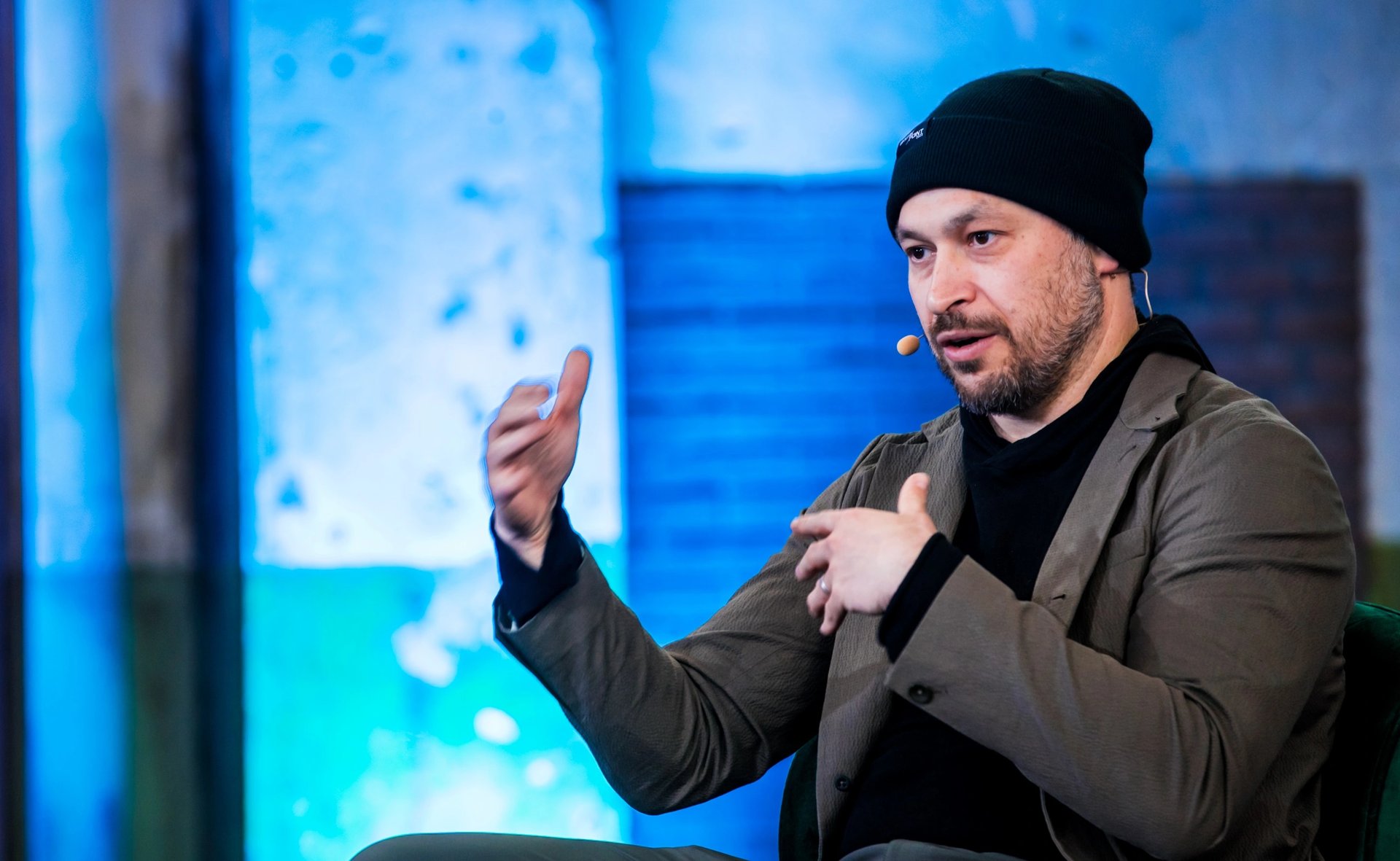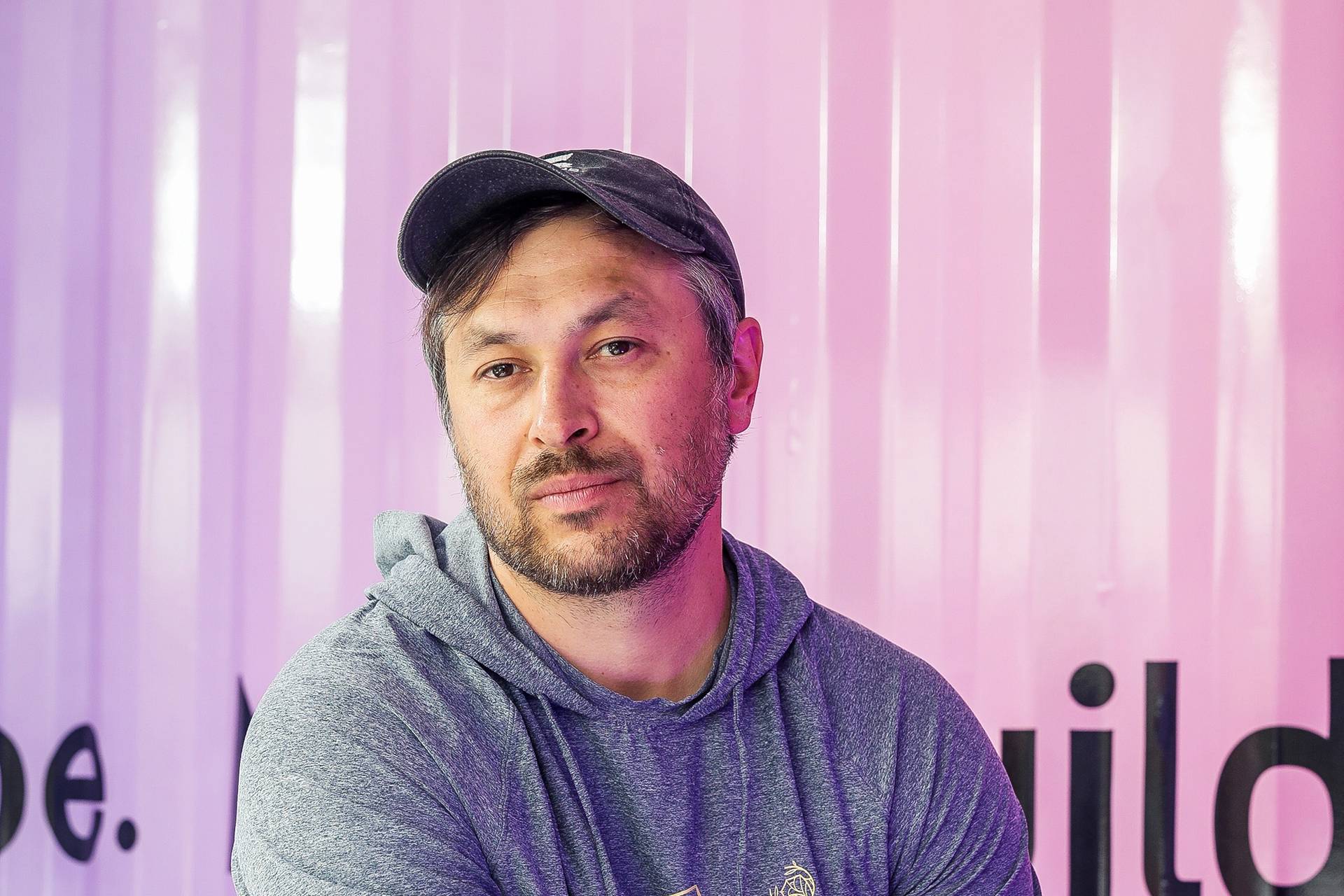위키 구독하기
Share wiki
Bookmark
Anatoly Yakovenko
0%
Anatoly Yakovenko
아나톨리 야코벤코는 솔라나의 CEO이자 공동 창립자입니다. 솔라나 이전에는 퀄컴에서 운영 체제 개발 팀장, 메조스피어에서 분산 시스템 개발 팀장, 드롭박스(서비스)에서 압축 개발 팀장을 역임했습니다. [1]
교육 및 개인 생활
야코벤코는 우크라이나에서 태어나 나중에 미국으로 이민하여 2003년 일리노이 대학교 어바나-샴페인에서 컴퓨터 과학 학위를 받았습니다. 어릴 때 그는 활과 화살을 만드는 것을 즐겼고, 십 대 시절에는 컴퓨터를 조립하고 초기 버전의 리눅스에서 프로그래밍하는 것을 좋아했습니다. 그의 가장 큰 영향은 카프카, 버로스, 괴델이었습니다. 그는 대학생 시절 사우스 센트럴 일리노이에서 인터넷 프로토콜을 통한 음성 통화(VOIP)를 구축하는 프로젝트에 참여했습니다. 이 경험 덕분에 그는 유사한 기술을 연구하고 있던 회사인 퀄컴과의 면접 기회를 얻었고, 이후 샌디에이고로 이사했습니다.
경력
야코벤코는 VoIP(Voice over Internet Protocol) 스타트업인 Alescere의 공동 창립자 중 한 명으로, 소규모 기업을 위한 VoIP 시스템을 위한 SIP 및 RTP 프로토콜 스택 및 서버 구성 요소 개발을 주도했습니다.
이후 2003년에 Qualcomm에서 경력을 이어갔습니다. 12년 동안 근무한 후 2016년 7월에 종료된 거의 3년 동안 수석 스태프 엔지니어 매니저 직책을 맡았습니다. Qualcomm에서 그는 여러 역할을 수행하고 다음과 같은 여러 작업을 수행했습니다.
- 차세대 애플리케이션을 위한 Qualcomm 칩셋의 고성능 Hexagon DSP 오프로딩 소프트웨어 스택을 위한 10명으로 구성된 팀의 수석 설계자.
- 증강 현실, 가상 현실, 3D 카메라 처리, 4K 비디오 후처리 및 GoogleX의 Project Tango를 포함한 상업용 애플리케이션.
2016년 7월부터 2017년 4월까지 그는 현재 D2iQ로 알려진 Mesosphere에서 소프트웨어 엔지니어로 근무하며 회사를 위한 분산 운영 체제를 구축했습니다.
Solana를 만들기 전에 2017년 5월부터 2017년 10월까지 Dropbox에서 소프트웨어 엔지니어로 근무했습니다. Dropbox에 있는 동안 분산 시스템 및 압축에 집중했습니다.
블록체인
Anatoly는 처음 비트코인이 출시되었을 때 채굴을 시도했습니다. 그러나 나중에 그는 이더리움과 이더리움 가상 머신 (EVM)에 더 큰 관심을 갖게 되었습니다. 그는 EVM이 비트코인보다 더 혁신적이라고 보았지만, 여전히 JavaScript와 유사하다고 생각했습니다. 2017년에는 친구들과 함께 그래픽 처리 장치 (GPU)를 사용하여 암호화폐 채굴 스타트업을 시작하는 것을 고려하고 있었는데, 그들은 스타트업 비용을 상쇄하기 위해 GPU를 딥러닝 작업에 사용할 계획이었습니다. Anatoly는 원래 암호화폐보다 딥러닝에 더 관심이 있었지만, 결국 "확장성을 어떻게 해결할 것인가?"라는 질문에 관심을 갖게 되었습니다. [14]
Qualcomm에서 무선 프로토콜을 사용하여 이러한 종류의 문제에 대한 확장성을 어떻게 해결할지 생각하기 시작했고, 그것이 저를 깊은 수렁으로 빠뜨리게 했습니다.
솔라나
아나톨리 야코벤코는 2017년에 솔라나를 설립했습니다. 그는 또한 솔라나의 원본 백서의 저자이기도 합니다. 프로젝트는 중단과 해킹을 겪었지만 생태계는 꾸준히 성장하고 있습니다.[15]
야코벤코와 그의 팀은 이러한 목표를 달성하기 위해 PoH(Proof of History)라는 새로운 합의 알고리즘을 만들었습니다. PoH를 구현함으로써 솔라나 블록체인은 초당 최대 50,000건의 트랜잭션을 처리할 수 있어 세계에서 가장 빠른 블록체인 중 하나가 되었습니다. [17]
2022년, Messari의 연례 컨퍼런스 Mainnet에서 진행된 인터뷰에서 그는 솔라나가 어떻게 주요 레이어 1 프로토콜 중 하나가 될 수 있었는지에 대해 다음과 같이 말했습니다. [18]
훌륭한 전략이었다고 말하고 싶지만, 사실 필요에 의한 기능이었다고 생각합니다. 우리는 결코 많은 활주로를 가지고 있지 않았습니다. 항상 20개월 이하였습니다. 그래서 12명의 엔지니어, 매우 스크래피한 팀이 2년 동안 빠른 블록체인이 병렬 실행이 가능하다는 것을 증명하기 위해 최소한의 것을 구축했습니다. 즉, EVM 지원, 이더리움과 유사한 기능이 없었습니다.
같은 인터뷰에서 그는 솔라나 랩스의 자회사인 솔라나 모바일과 하드웨어 및 소프트웨어 생산 회사인 OSOM의 협업인 휴대폰 Saga에 대해 이야기했습니다. [18]
애플리케이션은 점점 더 정교해지고 훨씬 더 복잡한 미디어와 상호 작용을 처리하고 있으며, 자체 보관은 여전히 위험하고 끔찍합니다. 그리고 휴대폰을 보면 '왜 이것이 내 하드웨어 지갑이 아닐까?'라는 느낌이 듭니다. 왜 우리는 이러한 매우 복잡한 작업을 수행하는 애플리케이션 내부에 시드 문구를 저장하고 있을까요? 그래서 그것이 1부이고, 2부는 [그] 탈중앙화가 진정한 실제 디지털 자산을 가능하게 한다는 것입니다.
솔라나의 뿌리는 컴퓨터 엔지니어로서 야코벤코의 여정과 연결되어 있습니다. 공동 창립자 Raj Gokal과 함께 샌디에이고의 Qualcomm에서 경력의 대부분을 보낸 야코벤코의 플랫폼에 대한 아이디어는 그의 삶의 그 시기에서 영감을 받았습니다. [22]
야코벤코는 딥 러닝을 위한 하드웨어를 구축하고, 그래픽 처리 장치를 배포하고, 프로젝트를 테스트하기 위해 암호화폐를 채굴하는 사이드 프로젝트를 진행하고 있었습니다. 이것은 결국 플랫폼의 생성으로 이어졌습니다. 이 플랫폼에 대한 아이디어는 시분할 다중 접속으로 알려진 개념에서 영감을 받았습니다. 야코벤코에 따르면 이 기술은 셀룰러 타워가 특정 시간 간격에 따라 전송을 번갈아 수행하는 방식과 관련이 있습니다.
그의 아이디어는 스탠포드 대학교 연구원들이 작업해 온 검증 가능한 지연 함수라는 기술을 기반으로 시스템을 구축하는 것이었습니다. 야코벤코는 자신이 진정으로 새로운 것을 발견했다고 생각하여 스마트 계약 레이어 플랫폼에서 작업을 시작했다고 농담합니다.
“제가 가졌던 직관은 공개 허가 없는 블록체인에서 분산된 방식으로 시간을 추적할 수 있는 방법이 있다면 Qualcomm이 셀룰러 네트워크에 대해 수행한 것과 유사한 최적화를 사용할 수 있다는 것이었습니다.” [22]
야코벤보는 솔라나가 전 세계 모든 금융 데이터에 대한 표준을 설정하고 시장의 비효율성을 근절하기를 바랍니다. [19]
이는 솔라나에 대한 저의 과학 소설적인 최종 목표와 같습니다. 뉴스가 전 세계로 퍼져나갈 때, 상태 변화가 뉴스와 같은 속도로 이동하는 것입니다. 뉴스가 뉴욕의 블룸버그 터미널에 도달할 때쯤에는 해당 뉴스가 반영하는 것의 가격이 이미 솔라나를 통해 전파되고 있어야 합니다. 따라서 트레이더가 뉴욕 증권 거래소(NYSE) 또는 솔라나에서 시장을 볼 때 가격이 동일해야 합니다. 이는 실제 차익 거래가 허용되지 않음을 의미합니다. 이를 위해서는 많은 노력이 필요합니다. 우리는 농담으로, 만약 우리가 해야 한다면, 지연 시간을 줄이기 위해 지구 중심을 관통하는 노드 간의 중성미자 기반 통신을 구축할 것이라고 말합니다.

솔라나 vs 이더리움
2023년 12월 X에 게시된 글에서 야코벤코는 이더리움 업그레이드가 두 기술을 더 가깝게 만드는 데 핵심이라고 제안했습니다.
"저는 결국 댕크샤딩이 솔라나의 모든 데이터를 처리할 수 있을 만큼 충분한 대역폭을 갖게 될 것이라고 확신합니다." - 그는 말했습니다.
그는 'ETH 킬러'라는 내러티브를 "시시하다"고 비난했습니다. 그는 솔라나가 번성하고 이더리움이 망하는 미래를 예상하지 않는다고 말하면서, 대신 두 플랫폼 간의 상호 운용성을 향상시킬 수 있는 기술 업그레이드를 지적했습니다.
"지난 사이클의 'eth 킬러' 같은 헛소리를 다시 가져오지 마세요. 시시합니다. 파레토 효율적인 기술은 겹치는 기능을 가질 수 있고 경쟁할 것이지만, 그게 다 괜찮습니다. 저는 솔라나가 번성하고 어떻게든 이더리움이 망하는 미래를 보지 않습니다. 저는 너무나 기술 낙관론자라서 결국 댕크샤딩이 솔라나의 모든 데이터를 처리할 수 있을 만큼 충분한 대역폭을 갖게 될 것이라고 확신합니다." - 야코벤코가 트윗했습니다[20]
DeFi에서 NFT에 이르기까지 이더리움은 신뢰할 수 있고 지속적인 플랫폼임이 입증되었습니다. 따라서 이더리움 상호 운용성을 수용하면 솔라나와 같은 플랫폼에 도움이 되고 암호화폐 공간에서 자리를 잡는 데 도움이 될 수 있습니다. [21]
밈코인과 NFT에 대하여
야코벤코는 솔라나 블록체인에서 밈코인과 NFT의 부상은 계획된 결과가 아니라 규제 개발의 더딘 결과라고 언급했습니다. 그는 솔라나 팀의 원래 임무는 전통적인 금융을 고속으로 온체인으로 가져올 수 있는 인프라를 만드는 것이었지만, 투기 자산이 궁극적으로 가장 큰 인기를 얻었다고 인정했습니다. [24]
그는 전 세계 누구든 밈코인과 NFT를 포함한 모든 것에 대한 시장을 만들 수 있으며, 규제 적응이 더디기 때문에 이러한 것들이 부분적으로 인기를 얻었다고 언급했습니다. 야코벤코는 또한 이러한 자산이 그가 솔라나의 "진정한 임무"라고 생각하는 것보다 더 성공적이었다는 것이 "짜증난다"는 데 동의했습니다. 그의 비판과 밈코인과 NFT가 근본적인 가치가 없다는 그의 견해에도 불구하고, 그는 모바일 게임 산업의 loot 상자와 비교하면서 상당한 수익을 창출할 수 있는 능력을 인정했습니다. [24]
비트코인에 대한 양자 위협
2025년 9월 All-In Summit에서 야코벤코는 양자 컴퓨팅이 비트코인의 보안에 미칠 수 있는 잠재적 위협에 대해 경고했습니다. 그는 2030년까지 양자 컴퓨터가 비트코인의 현재 암호화 보호를 깨뜨릴 수 있을 만큼 강력해질 확률을 "50/50"으로 추정했습니다. 그는 이러한 위험을 미연에 방지하기 위해 비트코인 커뮤니티가 네트워크를 양자 내성 서명 체계로 마이그레이션하기 시작할 것을 촉구했습니다. [25] [26] [27]
주된 우려는 충분히 강력한 양자 컴퓨터가 비트코인 개인 키를 보호하는 타원 곡선 디지털 서명 알고리즘(ECDSA)을 해독할 수 있는 Shor 알고리즘과 같은 알고리즘을 실행할 수 있다는 것입니다. 이렇게 되면 공격자가 트랜잭션을 위조하고 지갑을 손상시킬 수 있습니다. 야코벤코는 인공 지능에서 보이는 빠른 가속화에 따라 5년이라는 시간표를 정했습니다. 인공 지능에서는 개념이 연구 논문에서 실제 구현으로 "놀라운" 속도로 이동합니다. [25] [26]
이러한 변화를 구현하려면 비트코인 네트워크의 하드 포크가 필요하며, 이는 기술적으로 복잡하고 종종 논쟁의 여지가 있는 프로세스로, 이전 버전과의 호환성이 없습니다. 암호화폐 커뮤니티는 이 위협의 시급성에 대해 의견이 분분합니다. 야코벤코는 즉각적인 조치를 옹호하는 반면, Blockstream CEO인 Adam Back과 Jan3 설립자인 Samson Mow와 같은 다른 인물들은 이 위협이 더 멀리 떨어져 있다고 믿으며, 10년에서 20년 후로 추정합니다. [25] [26] [28]
암호화폐 및 국회의원
암호화폐와 정부에 대해 아나톨리 야코벤코는 Fortune과의 인터뷰에서 정부가 블록체인 연구 개발에 투자하는 데 앞장서야 한다고 촉구합니다. [23]
"지구상에서 가장 의미 있는 기술 중 일부인 GPS, 로켓, 심지어 인터넷까지도 원래 미국 정부에서 개발되었습니다. 유럽과 아시아 정부는 이미 블록체인에 투자하고 있습니다. 유럽 위원회는 잠재적인 민관 파트너십을 식별하기 위해 디지털 원장 샌드박스도 운영하고 있습니다. 우리도 그래야 합니다."[23]
그는 정책 입안자들이 디지털 자산을 규제하는 대부분의 정부 관리가 디지털 자산을 사용하는 것을 금지하는 윤리 규칙으로 인해 좋은 정책을 수립하기 어렵다고 말하면서 기술을 직접 실험해 볼 것을 권장합니다.
"페이스북을 열어보지도 않고 소셜 미디어를 규제하려고 한다고 상상해 보세요!"
아나톨리는 정책 입안자들이 기술에 접근할 수 있도록 하는 창의적인 솔루션을 더 나열했습니다.
"예를 들어 정부는 암호화폐의 속도와 비용 효율성을 활용하여 인도주의적 구호 자금을 보내고 연결성이 낮은 지역에서 분산형 통신 네트워크를 시작할 수 있습니다."[23]
잘못된 내용이 있나요?
